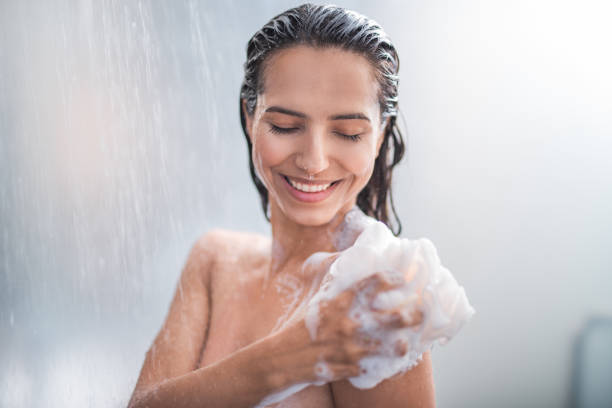Find out the “disadvantages of bathing with cold water” Cold bathing is the practice of bathing with cold water. It has been around for centuries and has been used for religious and cultural reasons, as well as for health benefits. In ancient times, cold bathing was believed to have therapeutic effects and was used to treat a variety of ailments. However, with the advancement of modern medicine and technology, it has been discovered that bathing with cold water has several disadvantages that outweigh its benefits.
Physical Disadvantages
Bathing with cold water can have several physical disadvantages. The first and most apparent is the impact it has on the skin. Cold water can dry out the skin, making it itchy, red, and flaky. This is because cold water washes away the natural oils produced by the skin that keep it moisturized. Over time, this can lead to eczema, a skin condition that causes dry, itchy patches on the skin.
Bathing with cold water can also damage hair cuticles, leading to hair loss. This is because cold water makes hair brittle and prone to breakage. In addition, cold water can lower the immune response of the body, making it more susceptible to colds and flu.
Mental Disadvantages
Bathing with cold water can also have several mental disadvantages. Firstly, it increases stress levels. This is because cold water causes the body to go into shock, triggering the release of stress hormones such as cortisol. Secondly, it causes discomfort, which can lead to feelings of irritation and frustration. Lastly, it reduces alertness, making it harder to concentrate and focus.
General disadvantages of bathing with cold water
Bathing with cold water can have several disadvantages, including:
1. Discomfort
One of the most obvious disadvantages of taking a cold bath is the discomfort it can cause. Many people find cold water to be too uncomfortable to bathe in, especially during the colder months of the year.
2. Reduced blood circulation
Cold water can cause vasoconstriction, which is the narrowing of blood vessels. This can lead to reduced blood circulation to the skin, making it more difficult for the body to eliminate toxins and waste products.
3. Increased stress
Cold water exposure can trigger the release of stress hormones such as cortisol and adrenaline. This can increase feelings of stress and anxiety, and can also make it more difficult to relax and sleep.
4. Risk of hypothermia
Prolonged exposure to cold water can lower body temperature, leading to hypothermia. This can cause shivering, fatigue, confusion, and even loss of consciousness.
5. Dry skin
Cold water can strip the skin of its natural oils, leading to dryness, flakiness, and irritation.
6. Increased susceptibility to illness
Cold water exposure can lower the body’s immunity, making it more susceptible to illnesses such as colds and flu.
7. Increased heart rate and blood pressure
Cold water exposure can cause the heart to beat faster and blood pressure to rise. This can be dangerous for people with heart conditions or hypertension.
Also read | Disadvantages of Bathing in Rain: Shocking Downside Revealed

Reasons People Bathe with Cold Water
People bathe with cold water for various reasons. Some do it for religious and cultural reasons, while others do it for its cooling effect. Cold water is believed to have a refreshing and invigorating effect on the body, which is why some people prefer it over warm water. Lastly, others do it for environmental concerns. Bathing with cold water consumes less energy than bathing with warm water, making it a more eco-friendly option.
Alternatives to Cold Bathing
If you’re looking for an alternative to cold bathing, there are several options available. One of the most popular is warm bathing, which is a comfortable and relaxing way to bathe. Warm water helps to open up the pores of the skin, allowing dirt and toxins to be washed away more easily.
Another alternative is lukewarm bathing, which is a middle ground between cold and warm water. Lukewarm water is gentle on the skin and is less likely to cause irritation or dryness than cold water. In addition, it can be refreshing and invigorating without being too cold.
Lastly, contrast bathing is another option that involves alternating between hot and cold water. This technique is believed to improve circulation and reduce muscle soreness. It involves alternating between hot and cold water for a set period, usually 30 seconds to 2 minutes, depending on your tolerance level.
Conclusion
In conclusion, while there may be some health benefits to taking cold baths, there are also several disadvantages to consider. It’s important to consult with a healthcare provider before starting any new health regimen, including cold water therapy.









